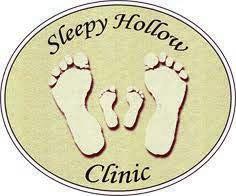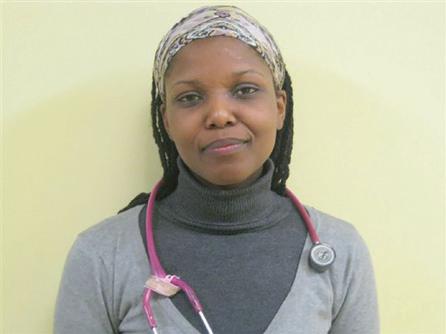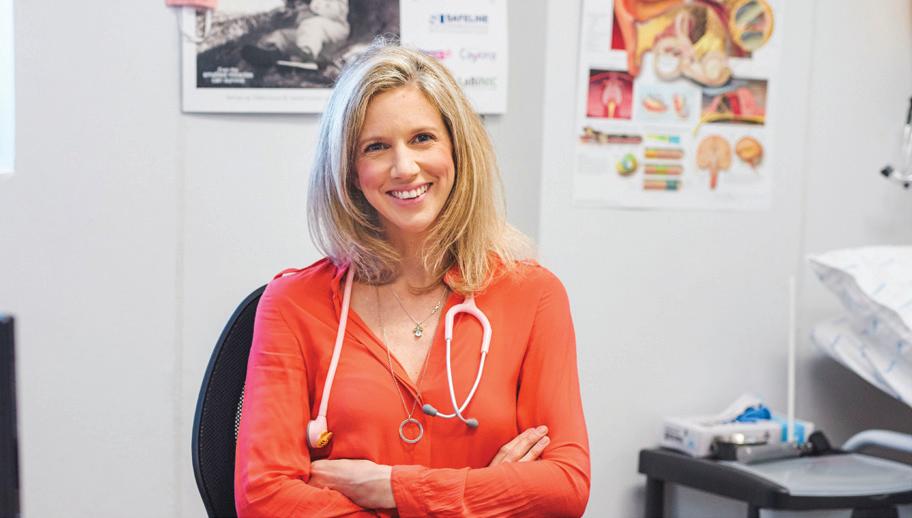healthy baby


healthy baby


MELOMED’S HOSPITALS OFFER
HIGH-QUALITY CARE FROM AN EXPERIENCED TEAM OF:
•Specialist Paediatricians
•Paediatric Surgeons
•Neonatologist
•Paediatric Pulmonologist
•Allergologist
Our Paediatric Wards are inclusive of Paediatric ICUs, High Care, Isolation Units and state of-the-art equipment. We have dedicated Neonatal Intensive Care Units (NICU), offering the best care for premature and sick newborn babies who need specialised treatment.
OUR PAEDIATRICIANS
Dr O Adam
Dr M Bassier
Dr M Ismail
Dr R Khan
Dr M Ledger
Dr WJ Linton
Dr MW Mathure
Dr M Meyer
Dr R Moore
Dr S Raban
Dr D Rhode Dr KP Seake
Dr N Sheik
Dr V Singata
021 391 4967/8 021 391 0199 021 633 0332 021 637 3811/3817 021 948 1347 035 789 0287 021 110 5145 021 712 1643 021 110 5941 021 023 0604/ 021 637 2358 021 945 1898 035 791 5428 035 772 1425 021 392 8255/8
How can I get better sleep while pregnant?

Questions to ask during your first trimester


Breastfeeding your newborn
Common breastfeeding problems and how to solve them
Nappy bag essentials

Modern technology for the modern mom to make the pregnancy and parenting a little easier – all from your smartphone.
Counting kicks is a simple way to monitor baby’s wellbeing.
Expectant parents in their third trimester are being encouraged to count their baby’s kicks. It could help save their baby’s life. Expectant parents can download the free Count the Kicks app to easily record their baby’s movements and notify their gynaecologist if something changes.
Milestones matter!







From birth to age 5, your child should reach milestones in how he or she plays, learns, speaks, acts, and moves. Track your child’s milestones from age 2 months to 5 years with the Centers for Disease Control and
Prevention’s easy-to-use Milestone Tracker app. Get tips for encouraging your child’s development; and find out what to do if you are ever concerned about how your child is developing. Photos and videos in this app illustrate each milestone and make tracking them for your child easy and fun!
* Both apps are available from the App Store or Google Play. The use of these apps is not a substitute for professional healthcare advice and care.
Published in the interest of your health by MELOMED
happen like before. What’s more, your kidneys are working harder as they filter not only your blood, but the baby’s too, which means, you guessed it, extra urine production. So what is a girl to do?
Here are some tips:
Quit caffeine. That means not only coffee but also cola and chocolate.
Don’t drink too close to bedtime. You still need six to eight glasses a day (water is more essential now than ever to prevent constipation).
Have a light snack, preferably something that includes protein and a complex carb, such as a slice of wholewheat toast with cottage cheese. This will prevent you waking up hungry in the middle of the night.
Relax. Try visualisation techniques or yoga relaxation at bedtime.
Get your quota of exercise early in the day. Yoga, swimming and walking are great, but remember exercise is energising, so you don’t want to do it too close to bedtime.
Don’t stress about it. If you don’t fall asleep right away, read a little, whatever will take your attention away from the fact that you’re not sleeping (yet).

Make sure the temperature is right for you. This could mean opening the window a bit wider or turning on the fan. Just do it before you get into bed.
Build a nest. Pillows are your friend. Arrange them any way that will make you comfortable.
When you’re pregnant, finding a comfortable position to sleep in can be challenging at best. Sleeping on your back isn’t recommended because it can obstruct blood vessels and slow blood circulation for you and your baby. But sleeping on your stomach will hurt your belly or breasts or cause stomach problems.















Side sleeping is considered the safest for you and your baby. Most doctors and experts recommend sleeping on your left side whenever possible because it’ll improve circulation and protect your liver but either side is fine; just find the spot that’s most comfortable for you.
Need ideas on how to get comfortable?
Prop with pillows. Placing a pillow between your knees or underneath your tummy can give you extra support. A full body pillow is great for this. Pillows positioned in the right way can also keep you from rolling onto your back or stomach while you sleep.
Prop up the top of your bed a with books or blocks. This will elevate your head and help reduce heartburn.
No matter what you do, sleeping while you’re pregnant is a challenge. But understanding why you’re having a hard time sleeping will help you address the problems head on so you can catch some z’s.
Expecting a baby? Here are some important questions to ask your Obstetrician and Gynaecologist during your first pre-natal check-up.

What type of pre-natal tests or screenings will I need to do in the coming months?
For the first trimester (10 to 12 weeks), your doctor will usually recommend an ultrasound scan and antenatal blood tests. Prenatal testing for Down syndrome is also typically recommended. At 20 weeks of pregnancy, there is usually a detailed anomaly scan on the foetus. Your Obstetrician & Gynaecologist may also order a glucose screening to test for gestational diabetes at 28 weeks of gestation.
yoghurt, kale chips or granola mix.
Am I genetically predisposed to certain medical conditions that may be considered of high risk to the foetus? If so, what are the preventative measures I can undertake to minimise my risks?
High blood pressure, diabetes, and autoimmune diseases such as lupus and multiple sclerosis can increase a woman’s risk for preeclampsia, preterm birth or stillbirth. Discuss with your doctor on viable steps you may take to reduce these prospects.
spinach, contain more than half of your daily folate requirement in a single serving. They are also rich in potassium, iron, phosphorus, magnesium and vitamins A and B6, necessary nutrients that aid in the growth of foetal tissue and organs. Nuts, berries, salmon, kale, lean chicken, sweet potatoes, avocado, and chocolate (in small doses) are also recommended.
How much weight should I gain during my pregnancy?
The amount of weight you should gain during pregnancy is based on your body mass index (BMI) before pregnancy. In general, if you start out at a healthy or normal weight, you should gain about 1 to 1.8 kg during the first trimester and 0.5 kg a week in the second and third trimesters.
Overeating can result in excessive weight gain and gestational diabetes, which in turn can put you at risk for pregnancy complications. If you feel hungry often, choose healthier snacks such as blueberries, hummus,
What are some normal pregnancy symptoms to expect and how can I manage them?
Usual symptoms include bloating, heartburn, fatigue, tender breasts, fatigue, constipation, headaches, food aversions or cravings, mood swings and nausea. Your Obstetrician & Gynaecologist can advise you on signs to watch out for so that you may be better prepared.
What should I start eating less of or abstain from eating altogether?
Anything raw is a definite no-no, and this goes for fish, shellfish, eggs and sometimes even vegetables, as trapped mud in some vegetables may be breeding ground for E. coli and salmonella.
Avoid soft cheeses such as brie, gorgonzola, camembert, Roquefort, or feta as they are made from unpasteurised milk and may contain listeria.
Abstain from alcohol as it may pass through the placenta and into the baby’s blood stream, resulting in foetal alcohol syndrome.
What kinds of food should I start eating more of?
Superfoods for pregnant women like lentils and
Any fish that registers high mercury levels should also be avoided, such as canned tuna and mackerel.
Feel free to ask your doctor any other questions that are weighing on your mind.
Your guide to the first week of nursing.
Excited about your baby’s arrival, but not quite sure about what to expect before and after pregnancy? You’re not alone. Every new mum and dad can use some help. Antenatal classes prepare you for birth, breastfeeding and transition to parenthood.
For baby: Lower risk of allergies, asthma, acute respiratory tract infections, diabetes, cardiovascular disease, obesity, gastrointestinal infections, otitis media and ear infections.
Improved immunity and a higher cognitive development and therefore higher IQ than formula fed babies.
For the mother: Lower risk of breast, ovarian and endometrial cancer, osteoporosis, rheumatoid arthritis, and maternal diabetes.
What should the first 48 hours of breastfeeding look like for a full-term healthy baby?
• Lots of skin to skin on mom’s chest to help regulate baby’s vital signs and initiate their interest in feeding.
• A good latch and feed in the first two hours after birth, if possible.
• If your baby is not able to latch successfully, hand express colostrum and offer a teaspoon or two every couple of hours to keep the blood sugars stable and buy you time for both of you to learn this new skill.
• Ask the midwives or nurses on the postnatal ward for assistance with latching to help build your confidence prior to being discharged.
• Babies may be drowsy after a long labour and may need a little extra encouragement to feed.
• Encourage baby to feed as often as baby is interested; 8 to 12 times per 24 hours. It is this very frequent feeding that encourages the milk to come in by day 3 to 4.
• The more they feed in the first 14 days, the better the long-term milk production is. Try and avoid separation, delayed responses to baby’s feeding queues, formula top ups if not indicated, and water top ups.
• Avoid nipple confusion in the first few weeks by avoiding a teat, so rather offer expressed breastmilk top ups via a teaspoon, syringe, cup feed or supplementary nursing system i.e., a feeding tube.
• A good deep latch, with most of the areola inside the baby’s mouth.
• Baby makes their own teat out of the soft breast.
• Your nipple should not be misshapen after a feed.
• Your nipple should feel comfortable during and after feed
• A newborn should feed on demand, but at least every 3 hours.
• Finish one side and then feed on the other.
• Alternate the starting breast each feed, no matter which breast you finished on.
• As milk comes in and your baby becomes a more alert feeder, the feeds may shorten and if supply is good baby may even just feed off one breast per feed.
Understanding baby’s feeding cues
• As soon as baby wakes and starts stirring and rooting, latch baby in the quiet alert phase.
• Do not wait until baby is franticly hungry or crying
as they are then more difficult to latch
• Observe when baby is satiated, comes off the breast “milk drunk” and shows no more interest in feeding
• Baby should lose some weight in the first few days.
• From about day 3 to 4 they start gaining weight.
• Baby should get back to birth weight around day 10 to 14.
Breastmilk is so much more than just nutrition. It is the gold standard of infant nutrition and the best ‘vaccination’ you can give your baby. Mothers-tobe should do research into the benefits of breastfeeding to keep motivated and to give their babies the best start!
• By about 4 weeks, when good breastfeeding is established baby should be gaining about 198 to 247g per week (girl) and 233 and 282g per week (boy).
• First stools passed are sticky and black (meconium).
• It is good to get rid of meconium to reduce jaundice.
• Once breastfeeding is established, the stools change from black or green/ black, to brown, to yellow and then to bright, mustard colour, watery stools.
• Frequency should be at least 4 to 5 stools per 24 hours (plus frequent wet nappies are always a good sign of good milk transfer).
• Frequency of stools slows down by 4 to 6 weeks, can be every other day or even a few days between stools (1 in 7 days).
This is not normal and there is clearly a latching issue. Get help from a lactation consultation as soon as possible:
• A breastfeed needs to be observed and assessed.
• Baby’s oral suction and deep latch needs to be assessed and corrected.
• Mom’s breasts and nipples need to be assessed (flat, inverted, too large, breasts too hard, oedema, etc.).
Correct latch, rinse nipples in salt water and apply medicated nipple ointment (available from your lactation consultant).

Day 3 to 4, when the milk comes in, mums may experience engorgement:

• Breasts may feel full, hard, painful






• Baby may find it hard to latch, all of a sudden

• Warm bath or shower and massage breasts with oil (e.g., coconut) in round circular motions and hand express to soften and be able to latch the baby.
• Lots of frequent feeds during this phase to help drain the breasts efficiently.
• Cold compress after massage/ feed - cold cabbage leaves or cold gel packs.
• Anti-inflammatory e.g., Ibuprofen (safe for breastfeeding).
• Do not actively express at this stage, only for relief;
You are more at risk if you have had a long labour with intravenous fluids and / or epidural or C-section.
• Nipple and areola are swollen and difficult to latch baby.
• Breastmilk difficult to transfer as oedema puts pressure on the milk ducts
• You must do reverse pressure softening massage and lymph drainage massage prior to latching the baby.
• Do NOT USE A PUMP to express, it makes the oedema worse.
Lumps in breasts, can be hard and painful. If left untreated it can develop into mastitis or a breast abscess.
• Warm shower, bath and/or massage with oil, start feed on affected side.
• Try and change feeding position to drain breast from different angles.
• Massage towards nipple while feeding.
• Massage towards armpit to promote lymph drainage.
• Oral supplements and tissue salts to promote drainage.
Area on breast is red, hot, painful, and may be hard. Mom may have flu-like symptoms with or without a fever.
• If not too severe, mom can take homeopathic remedies for 24 to 48 hours.
• Warm shower, bath and/or breast massage to help drain if not too painful.
• If no improvement or getting worse, then mom needs to see a doctor to take antibiotics.
• If still not better, then breast ultrasound by a breast surgeon or general surgeon to establish if there is an abscess. Sometimes they will aspirate an abscess or do an incision and drainage to allow pus to drain.
• You should continue breastfeeding to help the breast to drain.
• Take the correct probiotic for mastitis. >>
• Cracked or painful nipples
• Unresolved engorgement or breast oedema
• First signs of plugged duct, mastitis or abscess
• Low milk supply, fast let down or oversupply
• Signs of thrush on nipple, or breast
• Any breastfeeding issues that cannot be resolved on your own at home
• Any conditions such as thyroid disease, diabetes, PCOS, that may cause a delay in onset of breastmilk
• Expecting twins or multiples
• Premature baby or baby in NICU - to get supply established and transition baby from tube feeding to breastfeeding
• Breast surgery or breast cancer

• If baby is fussy at breast, not staying latched, or disorganised sucking
• Signs of thrush in baby’s mouth
• Baby is lethargic or jaundiced and too sleepy to feed
• Baby has poor urine or stool output
• Baby has poor weight gain or weight loss
• Baby has reflux, colic or any digestive symptoms

Breastfeeding in the first month can be challenging, frustrating and downright painful. The most important advice is simply, don’t give up.
It is important to remember why you are making this selfless choice. Focus on the good you are doing. You are providing essential nutrition, in a way that nothing else on earth can, by supplying crucial antibodies and protein that nurtures your baby’s growing brain.
•
•
•
•
•
• Forum
•



























Respiratory syncytial virus (RSV) causes infections of the lungs and respiratory tract.
RSV can cause severe infection in some people, including babies 12 months and younger (infants), especially premature infants, older adults, people with heart and lung disease, or anyone with a weak immune system (immunocompromised).
Respiratory syncytial virus enters the body through the eyes, nose or mouth. It spreads easily through the air on infected respiratory droplets. You or your child can become infected if someone with RSV coughs or sneezes near you. The virus also passes to others through direct contact, such as shaking hands.
RSV infection can spread to the lower respiratory tract, causing pneumonia or bronchiolitis — inflammation of the small airway passages entering the lungs.



Infants are most severely affected by RSV. Signs and symptoms of severe RSV infection in infants include:
• Short, shallow and rapid breathing
• Struggling to breathe
• Cough
• Poor feeding
• Unusual tiredness (lethargy)
• Irritability
Infants/young children at increased risk of severe or sometimes life-threatening RSV infections include:
• Infants, especially premature infants or babies who are 6 months or younger
• Children who have heart disease that's present from birth (congenital heart disease) or chronic lung disease
• Children with weakened immune systems from diseases such as cancer or treatment such as chemotherapy
• Children who have neuromuscular disorders, such as muscular dystrophy
PathCare o ers testing for RSV. Consult your doctor for more information